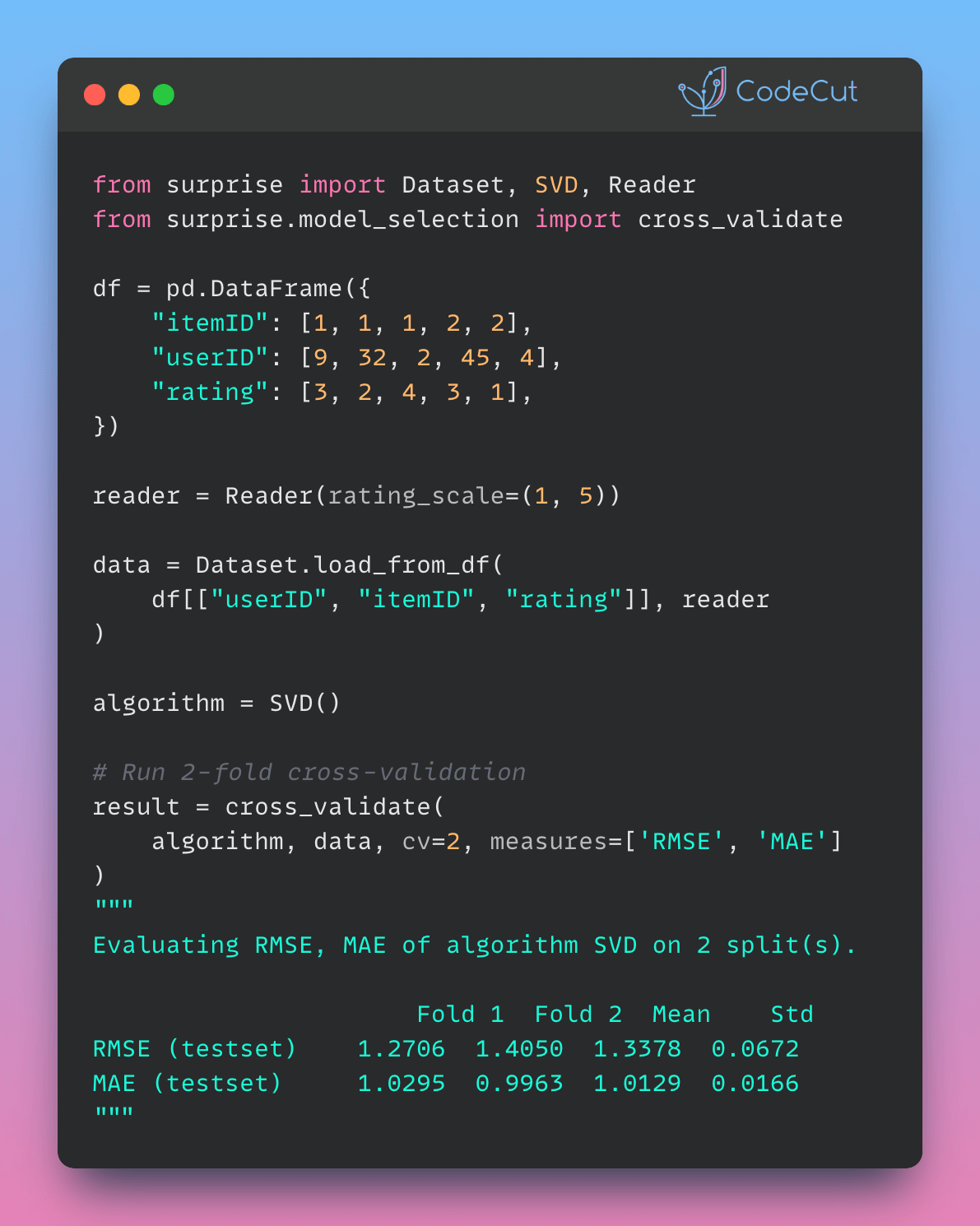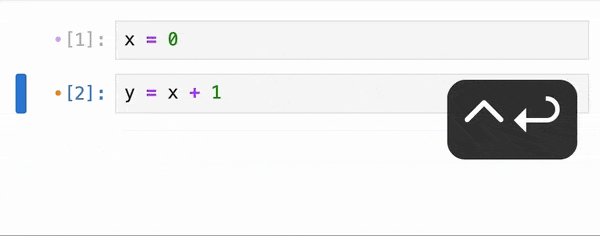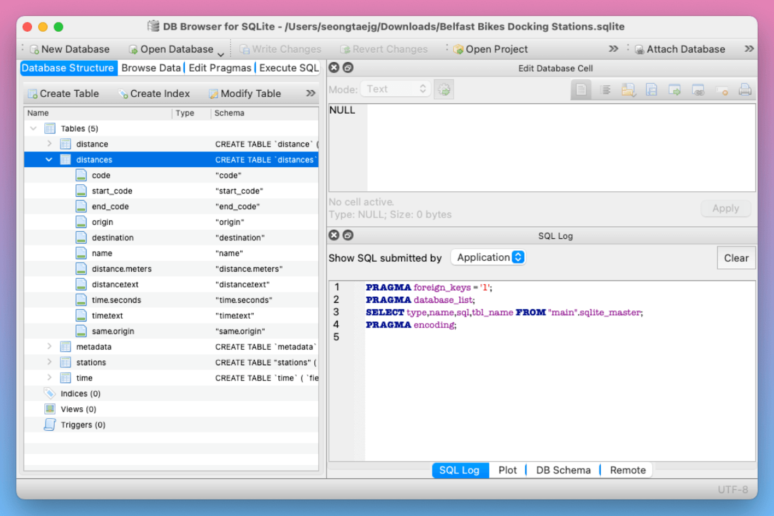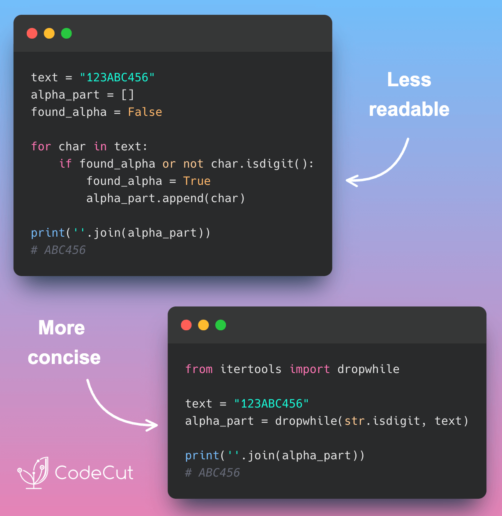Introduction
Building reliable recommendation systems from scratch can be a daunting task, requiring complex algorithms and data handling. This can result in spending significant time implementing common algorithms like SVD or handling cross-validation procedures. However, with the Surprise library, you can build and evaluate recommendation systems with just a few lines of code.
Quick Start with Surprise
Surprise provides a simple and efficient way to build recommendation systems. Here’s an example of how to use it:
import pandas as pd
from surprise import Dataset, SVD, Reader
from surprise.model_selection import cross_validate
# Create a sample ratings dataset
ratings_dict = {
"itemID": [1, 1, 1, 2, 2],
"userID": [9, 32, 2, 45, 4],
"rating": [3, 2, 4, 3, 1],
}
df = pd.DataFrame(ratings_dict)
# Create a reader with a rating scale of 1-5
reader = Reader(rating_scale=(1, 5))
# Load the dataset from the dataframe
data = Dataset.load_from_df(df[["userID", "itemID", "rating"]], reader)
# Create an SVD algorithm object
algo = SVD()
# Run 2-fold cross-validation and print results
result = cross_validate(algo, data, cv=2, measures=['RMSE', 'MAE'], verbose=True)
Output:
Evaluating RMSE, MAE of algorithm SVD on 2 split(s).
Fold 1 Fold 2 Mean Std
RMSE (testset) 1.2706 1.4050 1.3378 0.0672
MAE (testset) 1.0295 0.9963 1.0129 0.0166
Fit time 0.00 0.00 0.00 0.00
Test time 0.00 0.00 0.00 0.00
Computing Rating Predictions
You can also use Surprise to compute rating predictions for a given user and item. Here’s an example:
item_id = 302
user_id = 196
pred = algo.predict(user_id, item_id, verbose=True)
Output:
user: 196 item: 302 r_ui = None est = 3.00 {'was_impossible': False}
Available Algorithms
Surprise provides a variety of algorithms for building recommendation systems, including:
- Basic algorithms
- k-NN inspired algorithms
- Matrix factorization-based algorithms
You can view all available algorithms here.
Conclusion
Surprise is a powerful library for building recommendation systems. With its simple and efficient API, you can quickly build and evaluate recommendation systems using a variety of algorithms.







